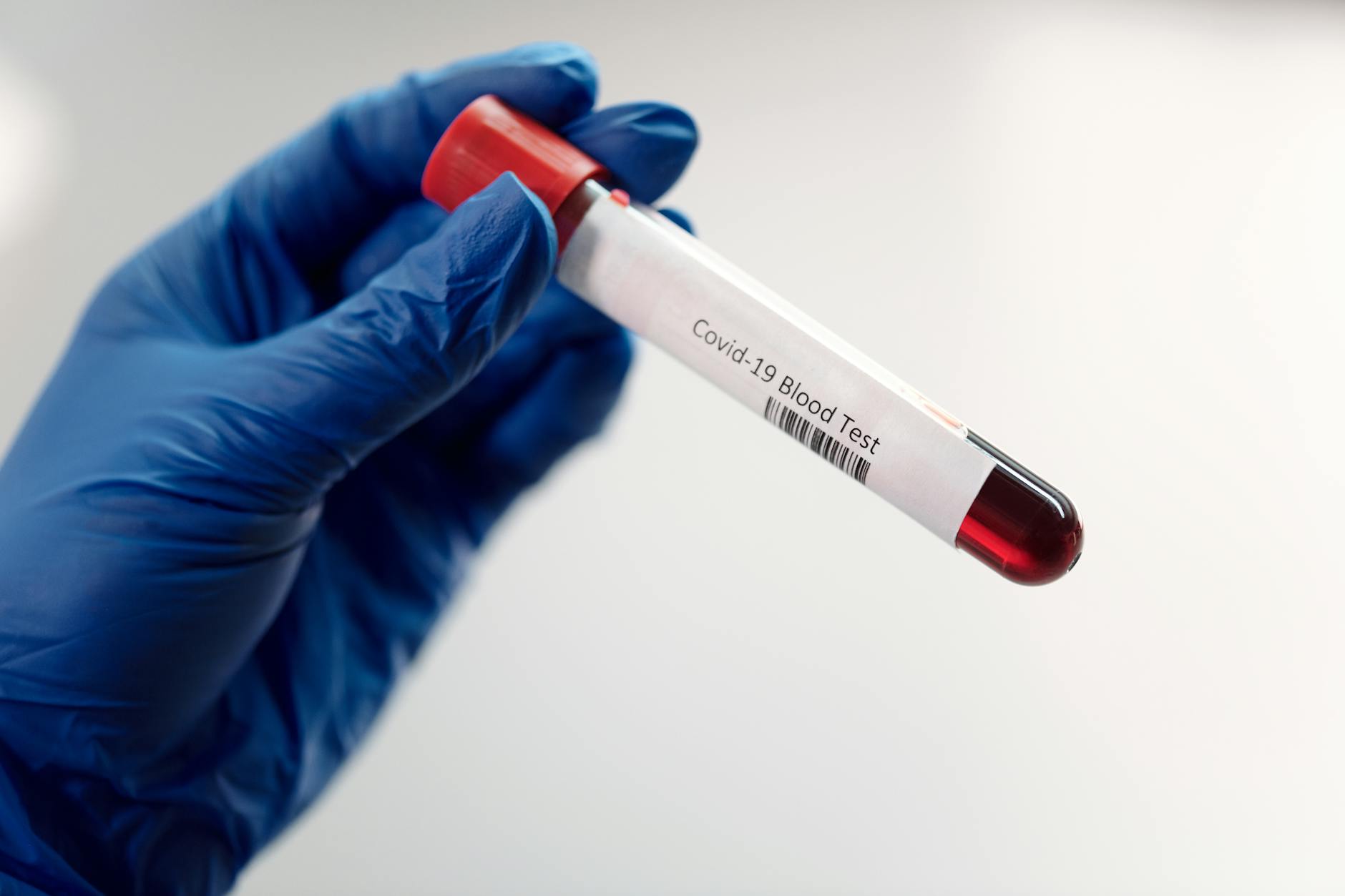Inflammation affects everyone, whether they are aware of it or not. The immune system defends the body against infection, damage, and illness. Many things cannot be healed without inflammation.
In autoimmune disorders such as arthritis and inflammatory bowel disease, your immune system may target healthy cells.
Inflammation is categorized into 3 major categories
- Acute: This normally lasts for a short time but is often severe. Symptoms can develop swiftly. However, it normally goes away in 2 weeks or less after the underlying reason (usually an injury or infection) has passed. This type recovers your body’s state prior to injury or illness.
- Chronic: This is a type that occurs gradually and is usually less severe. It normally lasts more than six weeks. Medical specialists have connected persistent inflammation to autoimmune illnesses and long-term stress.
- Subacute: This is a transitional period between acute and chronic inflammation that typically lasts 2–6 weeks.

Symptoms
The particular symptoms you experience are determined by the location of the inflammation in your body and the cause of it.
Chronic inflammation can cause a variety of symptoms and have a wide range of effects on your body.
Chronic inflammation symptoms may include the following:
- Body pain
- Chronic tiredness and sleeplessness
- Depression, anxiety, and other mood disorders.
- Gastrointestinal problems, such as constipation, diarrhea, and acid reflux.
- Unintentional weight gain or loss
- Frequent infections
Symptoms of common autoimmune inflammation
Symptoms can also differ depending on whether the illness has an inflammatory component.
For example, in some autoimmune disorders, your immune system damages your skin, resulting in rashes. In other cases, it affects specific glands, influencing hormone levels in the body.
In rheumatoid arthritis, the immune system attacks the joints. You may have
- joint discomfort
- edema
- stiffness
- Loss of joint function
- Limited range of motion
In inflammatory bowel disease, the digestive tract becomes inflamed. Some common symptoms are:
- diarrhea
- Stomach aches
- cramps
- bloating
- Weight loss
- anemia
In multiple sclerosis, the body attacks the myelin sheath. This is the protective covering for nerve cells. Possible symptoms include:
- numbness
- tingling of the arms, legs, or one side of the face
- double vision
- fuzzy vision
- partial vision loss
- fatigue
- Cognitive difficulties
- brain fog
Causes
This can be caused by many different sources, including
- chronic or acute illnesses.
- Certain drugs
- exposure to irritants
- foreign materials that your body cannot easily clear.
Recurrent acute inflammation might result in a chronic inflammatory response.
Also, there are foods that can cause persistent inflammation. These foods include:
- sugars.
- Refined carbohydrates
- Trans fats
- alcohol
How is it diagnosed?
There is no single test or the circumstances that produce it. Instead, based on your symptoms, your doctor may do the following tests to determine a diagnosis.
Blood test.
Abnormal levels can indicate something is wrong but not exactly what. Furthermore, there are no tests that can specifically evaluate someone for chronic inflammation.
Serum Protein Electrophoresis (SPEP)
Medical specialists believe SPEP is a reliable source for confirming chronic inflammation. It analyzes specific proteins in the blood to detect any problems. A high or low level of these proteins can indicate inflammation and other disorders.
C-reactive proteins (CRP)
CRP is naturally created by the liver in response to inflammation. A high CRP level in your blood might result from a variety of inflammatory disorders.
However, this test cannot differentiate between acute and chronic inflammation because CRP levels are high during both. High levels, paired with specific symptoms, can help your doctor make a diagnosis.
The ESR (erythrocyte sedimentation rate) test
Often known as the sedimentation rate test, is a trusted source. This test detects inflammation indirectly by measuring how quickly your red blood cells sink in a tube of blood. The quicker they sink, the more likely you are to experience inflammation.
A medical expert will rarely administer the ESR test alone because it does not help identify particular causes of inflammation. Instead, it can aid a clinician in determining whether inflammation is present. It might also aid them in monitoring your health.
Fibrinogen
A fibrinogen test can also assist your doctor in identifying inflammation by indicating whether your fibrinogen levels surpass the standard.

Other blood tests.
If your doctor feels the inflammation is caused by viruses or bacteria, they may run additional testing. In this scenario, your doctor can go over what to expect with you.
Other diagnostic examinations.
If you have symptoms like numbness on one side of your face or chronic diarrhea, your doctor may order an imaging test to examine specific portions of your body or brain.
To identify inflammatory gastrointestinal diseases, your doctor may undergo a procedure to look within the digestive tract. These tests may include:
- colonoscopy
- sigmoidoscopy
- Upper endoscopy
In some cases, modifying your diet can help reduce inflammation. You may feel better if you eat foods with less sugar and trans fats and avoid some processed foods.
Some meals can also help reduce inflammation.
- berries and cherries.
- Fatty fish such as salmon or mackerel,
- broccoli
- avocados
- Green tea
- mushrooms like portobello and shiitake, and
- turmeric
- ginger
- clove.
- Tomatoes
To further reduce inflammation, do the following:
- Engage in moderate exercise with regular rest times.
- Manage and minimize stress levels.
- Quit smoking, if necessary.
- Treat and manage any pre-existing conditions.
Additional therapeutic options
If your inflammation is caused by an underlying autoimmune disorder, your treatment options will differ.
Your doctor may offer numerous treatments to treat general inflammatory symptoms:
NSAIDs and Aspirin
Nonsteroidal anti-inflammatory medications (NSAIDs) are typically the first line of treatment for short-term pain and inflammation. The majority of these are available without a prescription.
Common NSAIDs include ibuprofen (Advil, Motrin, Midol), aspirin, and naproxen (Aleve).
Prescription versions, such as diclofenac, are also available. Your doctor may prescribe these to treat acute inflammation or specific problems.
NSAIDs can be beneficial in treating inflammation, but there are potential interactions and adverse effects, particularly with long-term usage. Tell your doctor about any other medications you are taking and if you have any side effects while taking an NSAID.
Corticosteroids
Corticosteroids are a type of steroid that is used to treat edema, inflammation, and allergic responses.
Corticosteroids are commonly available as a nasal spray, oral tablet, injectable, or topical.
While using corticosteroids, you should consult with your doctor regularly. Long-term use can result in negative effects, and certain interactions may arise.
Topical analgesics and other creams
Topical analgesics are recommended by healthcare providers for acute or chronic pain because they may have fewer adverse effects than oral medications.
Topical creams and lotions may contain several drugs. Some are prescription-only, so consult your doctor.
Some topicals include an NSAID, such as diclofenac or ibuprofen. This can be beneficial for persons experiencing inflammation and pain in a specific body region.
Other topical lotions may include natural substances with anti-inflammatory qualities.

To Conclude
Inflammation is a normal aspect of your body’s immune response. However, long-term or chronic inflammation can be harmful and has been linked to various autoimmune illnesses.
Acute inflammation is an expected element of the healing process. It may occur when you have a sore throat or a little cut on your skin. Once the underlying cause has been addressed, acute inflammation should resolve within a few days to weeks.
If you notice any evidence of long-term inflammation, you should see your doctor. They can perform certain tests and assess your symptoms to see whether you require treatment for any underlying issues.
